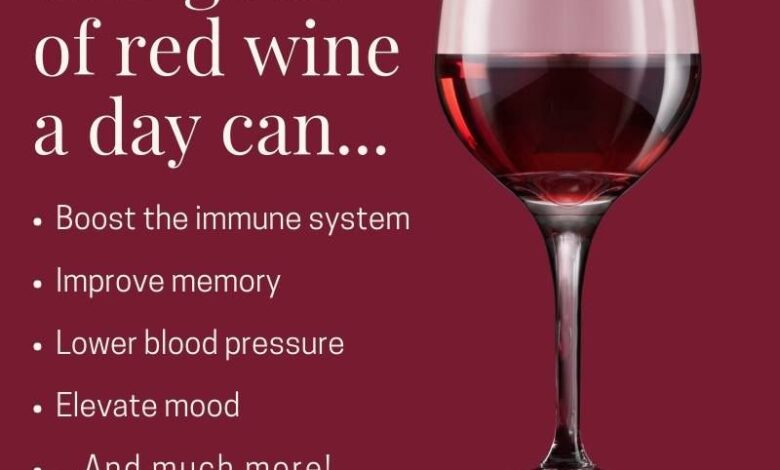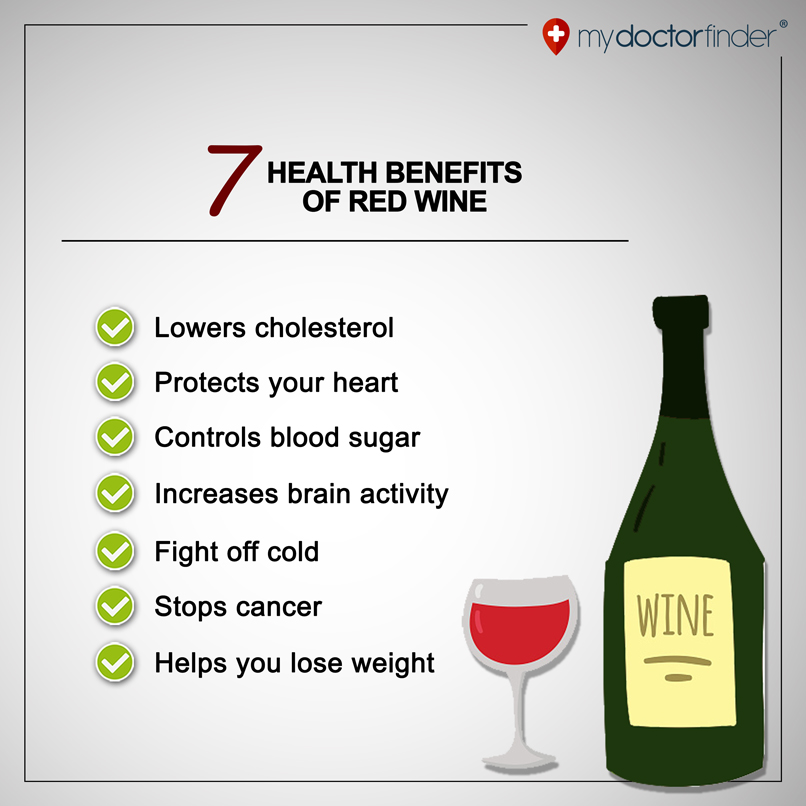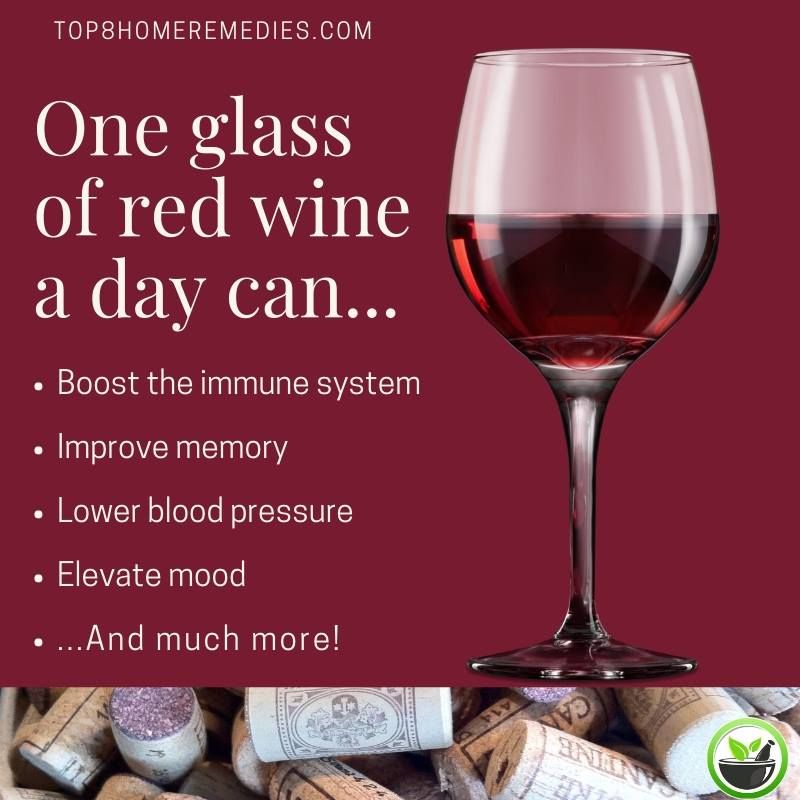
Is Wine Actually Good for You? Uncorking the Truth
Is wine actually good for you? This age-old question has sparked endless debates and fueled countless research studies. We all know that a glass of red or white can enhance a meal or a social gathering, but does it offer real health benefits?
The truth, as with most things, is complex. While moderate wine consumption has been linked to potential health benefits, excessive drinking can lead to serious health problems. Let’s dive into the fascinating world of wine and its impact on our bodies.
This article will explore the science behind wine’s potential benefits and risks, examining how it might affect cardiovascular health, brain function, cancer risk, and overall lifestyle. We’ll also discuss how wine consumption fits into a balanced diet and provide tips for incorporating it into a healthy lifestyle.
The Health Benefits of Wine
For centuries, wine has been enjoyed for its flavor and social benefits. But recent research has uncovered a potential health benefit associated with moderate wine consumption: improved cardiovascular health. While it’s important to note that excessive alcohol consumption is harmful, studies suggest that moderate wine intake may contribute to a healthier heart.
The Link Between Wine and Cardiovascular Health
Moderate wine consumption has been linked to a reduced risk of heart disease. This association is attributed to various factors, including the presence of antioxidants and the potential impact on blood pressure and cholesterol levels.
Antioxidants in Wine, Is wine actually good for you
Wine contains various antioxidants, particularly polyphenols, which are thought to protect cells from damage caused by free radicals. Free radicals contribute to oxidative stress, a process linked to chronic diseases, including heart disease.
- Resveratrol: This potent antioxidant, found in red wine, has been shown to have anti-inflammatory and anti-platelet effects, potentially reducing the risk of blood clots and improving blood vessel function.
- Quercetin: Another antioxidant found in both red and white wine, quercetin has been associated with reduced blood pressure and improved blood flow.
Wine and Cholesterol Levels
Some studies suggest that moderate wine consumption may have a positive impact on cholesterol levels. While more research is needed, it is hypothesized that wine’s polyphenols might contribute to a reduction in LDL (bad) cholesterol and an increase in HDL (good) cholesterol.
Wine and Blood Pressure
Moderate wine intake has been associated with lower blood pressure. While the exact mechanism is not fully understood, it is believed that the antioxidants in wine, particularly resveratrol, might play a role in relaxing blood vessels and improving blood flow.
Wine and Cancer Risk

The potential link between moderate wine consumption and a reduced risk of certain cancers has been a subject of ongoing research and debate. While some studies suggest a possible protective effect, it’s crucial to understand the complexities involved and consider the limitations of these findings.
Scientific Studies on Wine and Cancer Prevention
Numerous studies have investigated the relationship between wine consumption and cancer risk. Some studies have found an association between moderate wine consumption and a lower risk of certain cancers, including:
- Breast Cancer:A meta-analysis of 13 studies found that women who consumed moderate amounts of wine had a slightly lower risk of breast cancer compared to non-drinkers. However, other studies have found no association or even a slightly increased risk.
- Colorectal Cancer:Some studies have suggested that moderate wine consumption may be associated with a reduced risk of colorectal cancer. This effect may be linked to the presence of antioxidants in wine, such as resveratrol, which have been shown to have anti-inflammatory and anti-cancer properties.
- Prostate Cancer:Some studies have reported a potential association between moderate wine consumption and a lower risk of prostate cancer, particularly among men with a family history of the disease.
It’s important to note that these studies are observational, meaning they cannot prove cause and effect. Other factors, such as diet, lifestyle, and genetics, may also contribute to cancer risk. Therefore, it’s essential to interpret these findings with caution.
Antioxidants in Wine and Cancer Protection
Wine contains various antioxidants, including resveratrol, which is found in red wine and has been extensively studied for its potential health benefits. Antioxidants are substances that can protect cells from damage caused by free radicals, which are unstable molecules that can contribute to cancer development.
Resveratrol has been shown to exhibit anti-inflammatory, anti-proliferative, and pro-apoptotic effects in laboratory studies. These effects suggest that resveratrol may help to prevent cancer cell growth and promote their death.
Comparing Wine to Other Beverages for Cancer Prevention
While wine has been linked to potential cancer-protective effects, it’s important to consider other beverages that may also offer benefits.
- Green Tea:Green tea is rich in antioxidants, including polyphenols, which have been shown to have anti-cancer properties. Studies suggest that regular green tea consumption may be associated with a lower risk of certain cancers, including breast, colorectal, and stomach cancer.
So, is wine actually good for you? It’s a question that’s been debated for years, and while there’s some evidence suggesting moderate consumption might have some health benefits, it’s important to remember that alcohol is still a calorie-dense beverage.
If you’re looking to cut back on calories, there are plenty of easy ways to cut up to 500 calories without sacrificing flavor. So, if you’re concerned about your calorie intake, maybe it’s best to enjoy wine in moderation or explore other delicious and healthy alternatives.
- Coffee:Coffee contains antioxidants and has been linked to a reduced risk of several cancers, including liver, colorectal, and endometrial cancer. Some studies suggest that coffee may have a protective effect against cancer cell growth and inflammation.
- Water:While water doesn’t contain antioxidants, staying hydrated is essential for overall health and may indirectly contribute to cancer prevention. Adequate water intake can help to flush out toxins and support healthy cell function.
It’s crucial to note that the potential benefits of these beverages for cancer prevention may vary depending on individual factors and the specific type and amount consumed.
The Risks of Wine Consumption

While moderate wine consumption has been linked to certain health benefits, it’s crucial to acknowledge that excessive wine consumption can have serious consequences for your health. Overindulging in wine can lead to a range of health issues, including liver damage, heart problems, and an increased risk of certain cancers.
The Impact of Excessive Alcohol Consumption on the Liver
Excessive alcohol consumption can severely damage your liver. When you drink alcohol, your liver is responsible for breaking it down. However, when you drink too much, your liver can’t keep up, leading to a buildup of toxins. This can cause inflammation, scarring (cirrhosis), and even liver failure.
The Connection Between Excessive Alcohol Consumption and Heart Disease
Although moderate wine consumption has been associated with a lower risk of heart disease, excessive alcohol consumption can have the opposite effect. Excessive alcohol consumption can increase blood pressure, raise triglyceride levels, and weaken the heart muscle. These factors contribute to an increased risk of heart attack, stroke, and other cardiovascular problems.
The Relationship Between Excessive Alcohol Consumption and Cancer
Excessive alcohol consumption is linked to an increased risk of several types of cancer, including:
- Mouth and throat cancer:Alcohol can irritate the lining of the mouth and throat, making it more susceptible to cancer development.
- Esophageal cancer:Excessive alcohol consumption can damage the esophagus, increasing the risk of cancer.
- Liver cancer:Alcohol-related liver damage increases the risk of developing liver cancer.
- Breast cancer:While moderate alcohol consumption has been linked to a slightly increased risk of breast cancer, excessive consumption is associated with a significantly higher risk.
- Colorectal cancer:Excessive alcohol consumption has been linked to an increased risk of colorectal cancer.
The Risks of Wine Consumption for Individuals with Specific Health Conditions
For individuals with certain health conditions, even moderate wine consumption can be risky.
- Individuals with liver disease:Alcohol can further damage an already compromised liver, making it crucial to avoid alcohol entirely.
- Individuals with heart disease:Alcohol can interfere with heart medications and worsen existing heart conditions.
- Individuals with diabetes:Alcohol can lower blood sugar levels, which can be dangerous for individuals with diabetes.
- Individuals with high blood pressure:Alcohol can raise blood pressure, making it challenging to manage high blood pressure.
- Individuals taking certain medications:Alcohol can interact with certain medications, leading to potentially dangerous side effects.
Recommended Daily Limits for Alcohol Consumption
To minimize the risks associated with alcohol consumption, health organizations recommend adhering to daily limits.
We all love a glass of wine, but is it really good for us? While some studies suggest moderate wine consumption may have health benefits, others point to potential downsides. If you’re aiming for a healthy lifestyle, focusing on a Mediterranean diet might be a better approach.
The Mediterranean diet emphasizes whole foods, fruits, vegetables, and healthy fats, and you can easily make it low-carb friendly by following these tips: ways to make the mediterranean diet low carb friendly. This way, you can enjoy the delicious flavors of the Mediterranean while still keeping your carb intake in check.
So, maybe skip the wine and focus on a balanced, low-carb Mediterranean diet for a truly healthy lifestyle.
The Dietary Guidelines for Americans recommend that men consume no more than two alcoholic drinks per day and women no more than one alcoholic drink per day.
Wine and Diet: Is Wine Actually Good For You
Wine consumption can have a significant impact on overall diet, both positively and negatively. It’s important to understand how wine interacts with food choices and how it can influence weight management and potential risks for individuals with diabetes.
Wine’s Impact on Overall Diet
Wine consumption can influence dietary choices in various ways. For example, a glass of wine with dinner might encourage people to choose richer, heavier meals, potentially leading to increased calorie intake. Conversely, wine’s potential health benefits, such as its antioxidant properties, might encourage individuals to prioritize healthier foods.
Wine and Weight Management
Moderate wine consumption has been linked to potential benefits for weight management. Some studies suggest that resveratrol, an antioxidant found in red wine, may help regulate metabolism and promote fat burning. However, it’s important to note that wine itself contains calories, and excessive consumption can lead to weight gain.
Wine and Diabetes
While moderate wine consumption may offer some benefits for individuals with diabetes, it’s crucial to be cautious. Wine can raise blood sugar levels, and excessive consumption can negatively impact blood sugar control. It’s recommended that individuals with diabetes consult with their healthcare provider before incorporating wine into their diet.
Sample Diet Plan with Moderate Wine Consumption
Here’s a sample diet plan that includes moderate wine consumption: Day 1
Breakfast Oatmeal with berries and a small glass of red wine (4 oz)
Lunch
We’ve all heard the saying “a glass of red wine a day keeps the doctor away,” but is there any truth to it? While moderate wine consumption might offer some health benefits, it’s important to remember that it’s still alcohol, and excessive intake can be detrimental.
The question of what to eat and drink is particularly relevant for athletes, who need a balanced diet to fuel their performance. If you’re curious about the pros and cons of a plant-based diet for athletes , it’s worth doing some research to see if it’s the right choice for you.
Ultimately, whether you choose to enjoy a glass of wine or not, the key to a healthy lifestyle is moderation and a well-rounded diet.
Dinner Salmon with roasted vegetables and a small glass of red wine (4 oz) Day 2
Breakfast Yogurt with fruit and granola and a small glass of red wine (4 oz)
Lunch Turkey sandwich on whole-wheat bread with a side of fruit and a small glass of white wine (4 oz)
Dinner Vegetarian chili with a small glass of red wine (4 oz) Day 3
Breakfast Scrambled eggs with whole-wheat toast and a small glass of red wine (4 oz)
Lunch Leftover vegetarian chili with a small glass of red wine (4 oz)
Dinner Chicken stir-fry with brown rice and a small glass of red wine (4 oz) Note:This is just a sample diet plan and should be adjusted based on individual needs and preferences. It’s important to consult with a healthcare professional or registered dietitian for personalized dietary advice.
Wine and Lifestyle
Wine consumption can have a significant impact on various aspects of your lifestyle, from social interactions to your overall health. While moderate wine consumption might offer certain benefits, it’s crucial to be mindful of potential risks and how to incorporate wine into a healthy lifestyle.
Social Interaction and Stress Reduction
Wine has long been associated with social gatherings and celebrations. Sharing a glass of wine with friends and family can create a relaxed and enjoyable atmosphere, fostering connections and promoting conversation. The social aspect of wine consumption can contribute to a sense of well-being and reduce stress.
Studies suggest that moderate wine consumption can lower stress hormones, such as cortisol, which can lead to improved mood and relaxation.
Potential Risks for Individuals with Addiction Issues
For individuals with a history of addiction or those who are susceptible to substance abuse, wine consumption can pose significant risks. Wine contains alcohol, which is a depressant that can lead to dependence and addiction. Excessive wine consumption can result in various health problems, including liver damage, heart disease, and mental health issues.
Individuals with addiction issues should avoid alcohol consumption altogether or consult with a healthcare professional for guidance.
Tips for Incorporating Wine into a Healthy Lifestyle
Incorporating wine into a healthy lifestyle requires moderation and awareness. Here are some tips to help you enjoy wine responsibly:
- Limit your intake:For women, the recommended daily limit is one drink, while for men, it’s two drinks. A standard drink is defined as 5 ounces of wine.
- Choose quality over quantity:Opt for wines made with natural ingredients and lower in sugar content.
- Pair wine with meals:Enjoying wine with food can help slow down consumption and reduce the risk of overindulgence.
- Stay hydrated:Alternate alcoholic beverages with water or other non-alcoholic drinks to stay hydrated.
- Be mindful of your surroundings:Avoid drinking in situations where you may be tempted to overindulge.
- Listen to your body:If you experience any negative side effects from wine consumption, such as headaches, nausea, or dizziness, stop drinking immediately.
End of Discussion
Ultimately, the question of whether wine is good for you depends on individual factors, including your health history, lifestyle, and drinking habits. While moderate consumption might offer some benefits, it’s crucial to enjoy wine responsibly and prioritize a healthy lifestyle overall.
So, the next time you raise a glass, remember to do so with knowledge and moderation.






